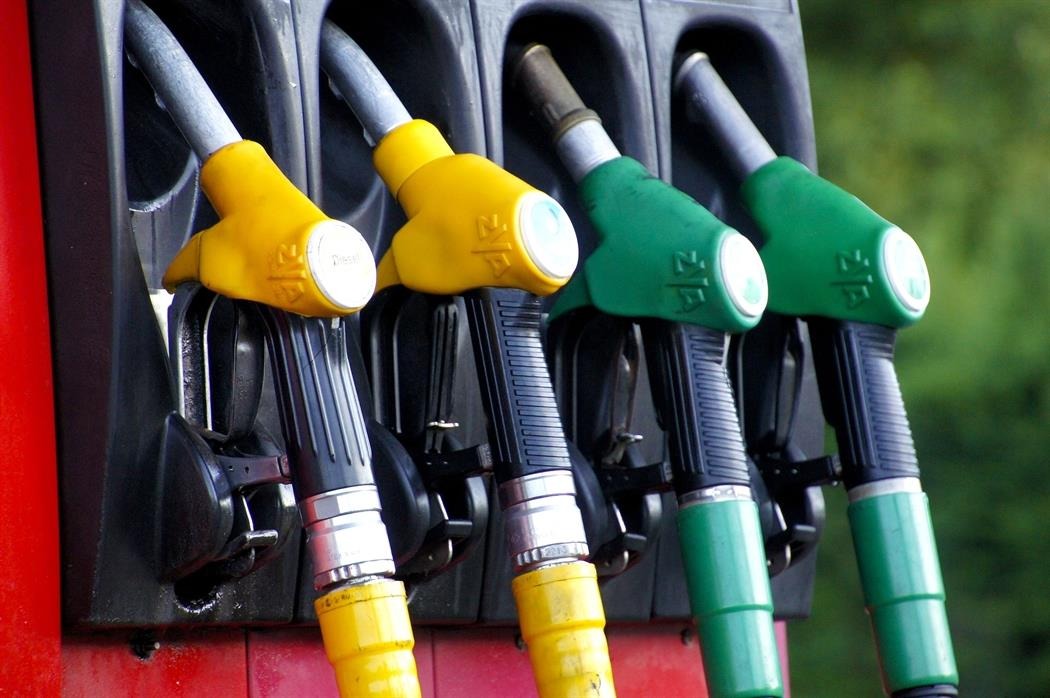Fuel prices in Cyprus are on the rise following the reintroduction of consumption taxes.
These increases are unrelated to recent events, notably Iran’s drone and missile attack on Israel on April 13 and subsequent developments.
In Cyprus, the average price of gasoline has increased by 4.5 cents per litre in recent days, diesel by 1.3 cents, and heating oil by 0.4 cents.
Considering that the reduced consumption tax was lifted on April 1, adding 8.3 cents per litre to gasoline and 6.3 cents to heating oil, consumers are now paying 14.7 cents more per litre for gasoline, 9.7 cents for diesel, and 6.4 cents for heating oil just in the first 17 days of April.
Currently, the average prices stand at €1.558 per litre for gasoline (range €1.446 – €1.617), €1.605 for diesel (range €1.544 – €1.649), and €1.132 for heating oil (range €1.065 – €1.257). Before the reintroduction of the consumption tax, the average prices were €1.411 for gasoline, €1.508 for diesel, and €1.068 for heating oil.
Further, before the latest increases, gasoline was priced at €1.513, diesel at €1.592, and heating oil at €1.128.
These increases were shaped after Iran’s attack on Israel last Saturday, but the pricing had been set earlier.
The risks for supply disruptions in the Middle East remain high, as it’s unclear whether and what retaliatory measures Israel might take.
Brent crude oil prices have remained below $90 per barrel recently. However, if conflict escalates and international prices rise further, the impact on Cyprus will be significant due to increased transportation costs.
Speaking to Phileleftheros, the Director of the Consumer Protection Service, Constantinos Karagiorgis, stated that there has been an upward trend in fuel prices lately, which is expected to be reflected in the Fuel Price Observatory issued by the Service.
“We are experiencing rising trends, and we can’t hide that,” said Karagiorgis.
However, he noted that these increases are unrelated to Iran’s strike on Israel. International markets, he said, didn’t panic, and oil prices globally have remained at similar levels.
Today, Brent crude oil is slightly below $90 per barrel. When asked about future prices, Karagiorgis stated that “no one knows where they will lead.” He mentioned that after the attack, some anticipated oil prices to soar to $100 per barrel, which fortunately did not happen.
It’s highlighted that Iran controls the Strait of Hormuz, the only maritime passage to the Persian Gulf, making it strategically significant.
About 30% of global oil supply and over 25% of global liquefied natural gas (LNG) supply pass through the Strait, with minimal alternatives or bypass options. According to estimates, around 15 million barrels pass through the Strait daily, out of approximately 40 million barrels traded and 102 million consumed.
Therefore, any closure of the Strait would further increase international oil prices.
The risk of further fuel price hikes remains as it’s still unclear whether Israel will respond, even if Iran has clarified that they won’t launch a new attack. Hence, uncertainty persists with possible devastating consequences if a war erupts in the Middle East.
Additionally, it’s estimated that considering the upcoming U.S. elections, President Biden will do whatever possible to keep oil prices low, as fuel prices significantly impact public opinion in the U.S.
Even the President of the European Central Bank, Christine Lagarde, in her statements regarding the potential negative impact of rapid developments in the Middle East on global oil markets, noted that the oil price reaction has been relatively moderate.
Iran is one of the world’s largest oil producers, with Iranian crude production having increased by more than 20% over the past two years, averaging 3.4 million barrels per day and representing about 3.3% of global supply.
Specifically, Iran is the fourth-largest producer within OPEC, which could cause a loss in oil supply between 500,000 and 1 million barrels per day. In such a scenario, the oil market would remain deficient for the rest of the year unless other OPEC member countries or even the U.S. take further actions to increase their production to meet the resulting demand.






